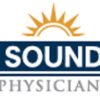Hospitalists on the Hill Day Offers Advocacy-Minded A Voice, Opportunity
Two years ago, when SHM’s annual meeting was last held in the Washington, D.C., area, 113 hospitalists armed with a policy mission swarmed across Capitol Hill. Their goal was as simple as it was targeted: Tell congressmen, their aides, and anyone else who would listen that hospitalists want to be a partner in helping government help healthcare.
“Every [Congressional] district has a hospital in it,” says SHM Public Policy Committee Chair Ron Greeno, MD, FCCP, MHM. “Every congressman has physicians in their community, and they value the opinion of those physicians. Nothing is more effective than having one of our members meet with a representative from their home district about the issues that we care about, or the staff of a member from their home district.
“Those are the most important interactions that we have.”
Welcome to Hill Day, vintage 2015.
Dr. Greeno and Josh Boswell, SHM’s director of government relations, have been hard at work planning this year’s daylong advocacy effort, scheduled for Wednesday, April 1. In 2013, more than 150 hospitalists participated in advocacy training, 113 hospitalists visited Capitol Hill, and dozens more wanted to participate but could not be accommodated. All told, hospitalists held 409 individual meetings with legislators and staff members.
This year, early interest forecasts similar results. Good thing, too, given that last fall’s mid-term Congressional elections means there are a lot of new faces in Washington who may never have met a hospitalist.
“There was a pretty big turnover in this election,” Dr. Greeno says. “There will be a lot of people that we’ll be interacting with for the first time, educating them about hospitalists and what hospitalists are, how we can help, and what the issues are that we care about. It’s particularly important this spring to get to know those new members.”
Part of the success of Hill Day, Dr. Greeno says, is preparation. SHM’s focuses this year will be:
- Clearing up confusion surrounding the two-midnight rule. The Centers for Medicare and Medicaid Services (CMS) changed the rules in 2014 to allow physicians to admit a patient if they reasonably expect and document in the medical record that a beneficiary will need to stay in the hospital for more than two midnights. But uncertainty and confusion call for more clarity.
- Medicaid parity. In 2013, via a regulation included in the Affordable Care Act, CMS increased Medicaid payments for certain primary care services to 100% of Medicare levels through the end of 2014. Bills have been hanging around both houses of Congress to either extend the rule or pass a new one, but no decision has yet been made. SHM supports continuing the 100% level. “When hospitalists are discharging patients with Medicaid, it’s very difficult to get someone to see them in the outpatient world. That was made a lot easier by the outpatient primary care physicians knowing that they were going to get Medicare levels of payment,” Dr. Greeno says.
- Meaningful use for electronic health records (EHR) exemption for hospitalists. SHM helped get an extension passed to exempt hospitalists from penalties in 2014, but not beyond. There are existing exemptions for hospital-based physicians, but that doesn’t help hospitalists who see significant numbers of patients in observation, those who round in skilled nursing or other post-acute facilities, or those who practice in those settings full time.
“The issues that we’re advocating for are really nonpartisan issues,” Dr. Greeno says. “But getting an agreement on an exact solution is just more difficult in this highly partisan atmosphere. It requires an increased level of activity on our part if we want to be successful. Our presence in D.C. has been greater and greater every year, our message has become more clear, and our efforts have paid off.”




